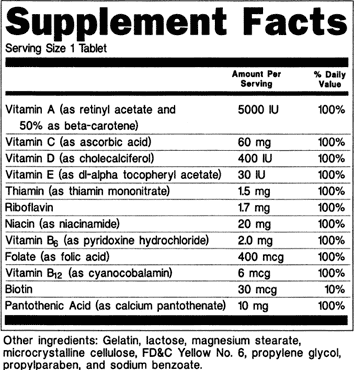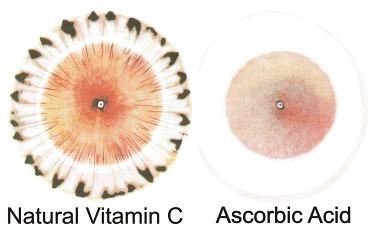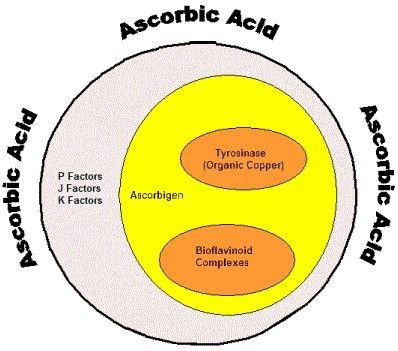As more and more people become jaded by pharmaceutical drugs, (medical error is now the #3 killer, according to the British Medical Journal) they are looking towards more natural means for health. With thousands of “natural” supplements to choose from, and all kinds of information and misinformation available, one has to wonder, “Where do I even start?” As of 2012, the nutritional supplement business was worth over $96 billion, and pharmaceuticals sales amassed to $1.3 trillion. These statistics prove there is a lot at stake in this game. This blog post is intended to be an overview to help you sort out the good supplements from the bad supplements, and explain why there is conflicting information on supplement use.

Myth #1 All vitamins and supplements are created equal
The first thing to know is that not all supplements are created equal. Supplement health claims made or dismissed by different parties and research papers vary based on what type of vitamin or supplement is used to conduct the research. Factors that play in to this are the source of the vitamin or supplement, the part of the plant used, the manufacturing process, and much more.
On many food labels (like the one above) you will see claims of 100% daily recommended intake. Often, these claims are based on what scientists and nutritionists from government agencies consider to be the active compound in the vitamin (usually the antioxidant portion). A few examples are Vitamin C (as ascorbic acid), Vitamin D (as cholecalciferol), Vitamin B12 (as cyanocobalamin), and so on.
The description in parentheses next to the vitamin name on a food label means that the nutrients are not the whole molecular complex of the vitamin that can be found in actual, REAL foods. Examples from the label pictured above are Folate (as folic acid) and Niacin (as niacinamide). To get the whole vitamin complex, you must eat real food. Below are a few pictures of the difference between Vitamin C and ascorbic acid.




As these pictures show, ascorbic acid is the protective antioxidant shell around the whole vitamin C complex and is only a part of the complete Vitamin C structure. This is why I recommend and use whole food supplements. Not only do they contain the whole vitamin molecular structure, but they also contain many synergists that aid in their absorption.
In addition to the makeup of the vitamin or supplement, how it is made and processed also influences its bioavailability and how much can actually be absorbed by your body.
Many synthetic vitamins and supplements are heat pressed with binders. This makes it more difficult for your body to absorb the nutrients, and much of these vitamins pass right through your digestive system. The heat can also denature the molecules, just like it does in pasteurization. So if you are looking for a multivitamin or supplement, make sure it is cold pressed to ensure you are actually getting your money’s worth.
As I mentioned earlier, researching supplements can be confusing because some evidence you find supports use, while some evidence warns of use. This is all due to a lack of consistency in research on the plants used for supplements. It can also result in some supplements proving ineffective while others are truly helpful. The efficacy of different plants and herbs varies based on the part of the plant used. The leaves, stalk, and roots of the same plant will all have different effects on the body’s physiology, but can be labeled as the same thing. Varying species of the same type of plant will also provide varying results.
Another problem with some supplements is the country of origin. Many supplements sourced from overseas are contaminated. This contamination can include fillers and heavy metals. Developing countries often do not have the same regulations on their factories which results in dirtier air and rain, which affects the soil the plants are grown in, and results in heavy metal contamination.
Due to all of these factors, it is important to know where your supplements are coming from and how they are being made. This is why I use Standard Process in my office. They provide whole food supplements from an all-organic farm. They conduct their own research and have an on-site lab to ensure quality of their product. Information on their manufacturing processes can be found by clicking here.
Myth #2: The FDA doesn’t regulate vitamins and supplements
According to FDA.gov, the FDA does not regulate safety and efficacy claims of supplement companies. It does, however, ensure quality production. The supplement companies must follow the FDA’s good manufacturing guidelines. This means the FDA monitors to make sure that what supplement companies say is in the product is actually there and that there aren’t any impurities or contaminants, like heavy metals. The FDA can also ban products and remove them from store shelves if adverse reactions are associated with their use.
The Federal Trade Commission also monitors supplement companies to make sure they do not make false claims. According to the FDA’s website, only drugs can cure disease, so companies can’t make claims such as, “treats heart disease.” The FTC can pull supplements from stores and fine the company if such claims are made.
Myth #3 Everyone needs the same vitamins and supplements
In general, one-size-fits-all statements don’t really fit all. This goes for just about everything in life. Some people can eat gluten and not notice any problems, while others know someone who, by eliminating gluten from their diet, changed their life and their bathroom experience. This is also true for Aspirin. In 2014, the FDA reversed its stance on Aspirin, stating the benefit of daily aspirin prevention for heart issues did not outweigh the risks. This holds true for vitamins and supplements as well. Can a lot of people benefit from a probiotic, an omega 3, and multivitamin? Yes! But, not everyone needs them, and some people are just wasting their money on them. If you do take supplements, remember that not everyone needs the same amount. A person who just finished a round of antibiotics for a bacterial infection probably needs a probiotic more than someone who takes it daily. People who include fats as a staple in their diet and eat plenty of seafood probably don’t need to take as much of an omega 3 as someone who eats the Standard American Diet (SAD). The way most people live and eat in the U.S. leads most people to needing these supplements, but I would encourage everyone to talk to a physician who is knowledgeable on nutrition. This will allow you to tailor your supplementation to what you actually need.
Myth #4: Supplements make up for bad diet
Most people take a vitamin or supplement because they want to be at least somewhat healthy. Unfortunately, many people expect that pill to be a magic bullet that keeps them healthy and guarantees them a longer life. Without true diet and lifestyle changes, people are fighting an uphill battle because the supplements are constantly fighting bodily inflammation and oxidation. Vitamins and supplements aren’t meant to take the place of what you eat; they are meant to fill in the gaps or assist in the healing process. In the end, it all boils down to what many of my mentors and teachers have told me: You can’t supplement your way out of a bad diet.
We were created to get our nutrients from food, but our food today is more depleted of nutrients than it was 50 years ago. This is why supplements can be necessary. While I acknowledge that synthetic vitamins can work (I carry some in my office for specific cases), I believe most people will benefit more from getting the whole vitamin and mineral complex with the synergistic nutrients. This can only be found in living food. For this reason, I predominantly recommend and use whole food supplements like Standard Process.





